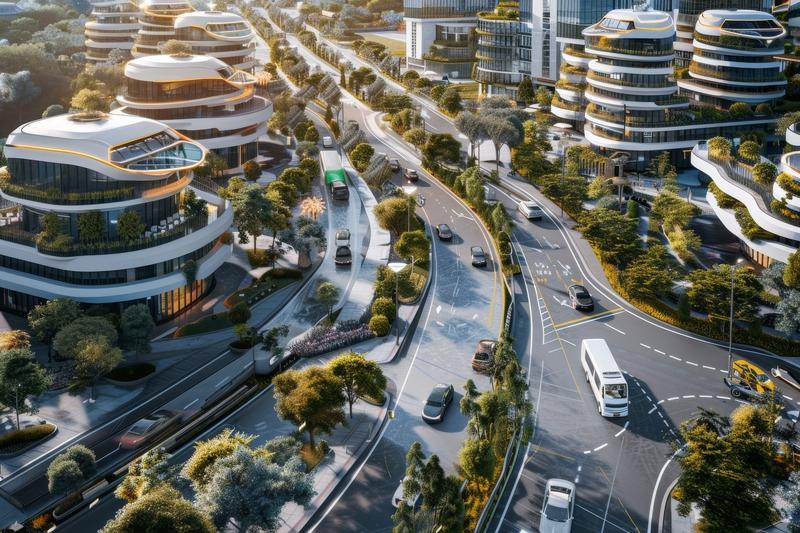Nissan is using an array of technical talent to develop its next generation autonomous vehicle, including automobile and software engineers, experts on sensor technology and artificial intelligence, computer scientists, production specialists an anthropologist.
Melissa Cefkin, principal scientist and design anthropologist at the Nissan Research Center in Silicon Valley is playing a key role in the project, analysing human driving interactions to ensure that it is prepared to be a ‘good citizen’ on the ro
Nissan is using an array of technical talent to develop its next generation autonomous vehicle, including automobile and software engineers, experts on sensor technology and artificial intelligence, computer scientists, production specialists an anthropologist.
Melissa Cefkin, principal scientist and design anthropologist at the Nissan Research Center in Silicon Valley is playing a key role in the project, analysing human driving interactions to ensure that it is prepared to be a ‘good citizen’ on the road.
Cefkin is a corporate and design anthropologist specialising in ethnography, is the systematic study of people and cultures from the viewpoint of the subject.
In the case of autonomous vehicles, Cefkin said that means taking a fresh look at how humans interact with ‘a deeply and profoundly cultural object’ - the automobile - and gaining insights into how new technologies might interpret or act on those behaviours.
“Car technology is continuing to evolve and change,” she said. “And now … we’re adding this autonomous dimension to it … that will bring around further changes in society, all the way down to the everyday way in which we interact and behave on the road.”
Cefkin and the other members of her team are focused on the third milestone in Nissan’s autonomous vehicle program - development of the capability for the vehicle to navigate city driving and intersections without driver intervention.
That system is expected to be introduced in 2020, following the release in July 2016 of the first of Nissan’s autonomous drive technologies, known as ProPILOT, an autonomous drive technology designed for highway use in single-lane traffic, and a multiple-lane application that can autonomously negotiate hazards and change lanes during highway driving, due in 2018.
When Cefkin joined Nissan in March 2015, she and her team immediately began documenting not just interactions in the city involving drivers, but also those between vehicles and pedestrians, bicyclists and road features.
Initial learning from the study show that drivers, pedestrians and bicyclists often use ‘eye gaze’ and forms of ‘direct communications’, such as a hand wave, to give off very clear signals about their intentions in such situations, Cefkin said.
She claimed such studies demonstrate the wisdom of having anthropologists involved in the earliest stages of vehicle design, rather than making adjustments later in the product cycle as some other automakers have done.
Melissa Cefkin, principal scientist and design anthropologist at the Nissan Research Center in Silicon Valley is playing a key role in the project, analysing human driving interactions to ensure that it is prepared to be a ‘good citizen’ on the road.
Cefkin is a corporate and design anthropologist specialising in ethnography, is the systematic study of people and cultures from the viewpoint of the subject.
In the case of autonomous vehicles, Cefkin said that means taking a fresh look at how humans interact with ‘a deeply and profoundly cultural object’ - the automobile - and gaining insights into how new technologies might interpret or act on those behaviours.
“Car technology is continuing to evolve and change,” she said. “And now … we’re adding this autonomous dimension to it … that will bring around further changes in society, all the way down to the everyday way in which we interact and behave on the road.”
Cefkin and the other members of her team are focused on the third milestone in Nissan’s autonomous vehicle program - development of the capability for the vehicle to navigate city driving and intersections without driver intervention.
That system is expected to be introduced in 2020, following the release in July 2016 of the first of Nissan’s autonomous drive technologies, known as ProPILOT, an autonomous drive technology designed for highway use in single-lane traffic, and a multiple-lane application that can autonomously negotiate hazards and change lanes during highway driving, due in 2018.
When Cefkin joined Nissan in March 2015, she and her team immediately began documenting not just interactions in the city involving drivers, but also those between vehicles and pedestrians, bicyclists and road features.
Initial learning from the study show that drivers, pedestrians and bicyclists often use ‘eye gaze’ and forms of ‘direct communications’, such as a hand wave, to give off very clear signals about their intentions in such situations, Cefkin said.
She claimed such studies demonstrate the wisdom of having anthropologists involved in the earliest stages of vehicle design, rather than making adjustments later in the product cycle as some other automakers have done.








